|
Logan just had its annual Summerfest arts fair, possibly the last I'll ever attend, since I'm moving out of town in three weeks. I wandered around more wistfully than usual, but like usual, I awkwardly tried to look at all the booths without making eye contact with the sellers and feeling guilty for not buying anything. I wonder if AI will drive down the price of art. Maybe the amount of labor people put into their art is worth the prices they charge, but how do they stay in business? Who the hell has $4,300 to spend on a painting? Certainly not the average citizen of Logan. If I charged for the labor I put into my novel, it would cost more than a textbook. More than two textbooks, even.
Speaking of which, I spent an hour talking to Nathanael Wright, the author of Fairy Tales of Kindness and Courage, who remembers me from some singles ward or other. Actually, I didn't talk to him the whole time because whenever his target audience came near his booth, he had to talk to them and invite them to take free stickers. So in addition to picking his brain for advice, I got to observe his salesmanship in action. His books are also self-published, though they look much better than mine. He probably had more money to put into them. I didn't buy any because I'm not in the target audience. They are more affordable than most items at Summerfest, though. He said that if he ever finds a typo in one of his published books, he goes and quietly changes the manuscript without guilt. I may have to do that now. I haven't found any typos per se, but I want to pull a George Lucas and keep making my novel better. I do that with blog posts sometimes. I've watched the first three episodes of the new Star Wars show "The Acolyte." I really wanted to like it. I was eager to see an era besides the freaking Empire for a change. And I see it as a good thing that Star Wars has more brown people and lesbians than it used to. But the characters are too boring to save the weak plot. I'm sure I'll watch the rest of the season just because I have an unhealthy relationship with Star Wars, but if you don't have an unhealthy relationship with Star Wars and you don't make monetized reviews on YouTube, don't bother. I agree with most of the YouTuber criticisms, but again, I see it as a good thing that Star Wars has more brown people and lesbians than it used to. I don't feel attacked by that. This one YouTuber complained that the midi-chlorians are racist because a scene of Jedi younglings contained no white males. I want to know if he's ever, even once in his life, complained about a group of people containing no Asian females. Some white males just feel threatened by not constantly being the center of the universe. On the flip side, Republicans are enraged by the possibility of their daughters having to register for selective service and potentially fight in wars. I resent their implication that my life is more expendable than a woman's or that my penis comes with a greater obligation to die in wars that other men started. Making men register for selective service based on their sex is a civil rights violation. Making women register too would also be a civil rights violation, but at least it would remove the sex discrimination aspect, and since Republicans value their daughters more than their sons (even though they have a strange way of showing it by fighting against women's healthcare and reproductive rights), this could motivate them to abolish the damn thing altogether. So I'm all for it. And deranged Utah senator Mike Lee says it will happen over his dead body, so that's a win-win. A friend gave me one of her legal mushroom gummies, and I ate it today, hoping to get a spiritual experience. It made me kind of hungry and extremely tired for about three hours. If I'd known it would have that effect, I would have saved it for right before bed. I wish I had something more interesting to report. She also gave me one of another kind of gummy, so there's still hope for that one. Ultimately, I intend to try psilocybin, maybe after I move closer to the Divine Assembly. I don't think I ever wrote about the book that completely changed my perspective on psychedelic drugs a few months ago. It's called The Immortality Key by Brian Muraresku, and I recommend it to everyone. This book makes so much sense of the history of religion and is one reason I believe in life after death. I'll have to say more about it when I'm in the mood. I went to a Juneteenth concert on campus this evening. Racists on social media are still complaining about Juneteenth, and they still need to drop dead. I was going to say something less family-friendly, but I decided to be compassionate. It must be the effect of that gummy. So I went to the concert, and then as I was leaving, I saw Brad Hansen, one of the local cops that I have a problem with. By the time I recognized him, though, I'd missed my chance to flip him off. I consoled myself over this missed opportunity by spitting on his empty car. So we'll see if I get arrested for that.
0 Comments
Yesterday was the four-year anniversary of George Floyd being murdered by police in broad daylight. I had just written a blog post the previous day about American police murdering people, which of course is a very old topic. I wasn't surprised when it immediately happened again, but I was surprised that this time turned out to be the final straw. In the years since then, the United States has taken a few teensy-tiny baby steps toward putting police officers in their place and holding them accountable for their actions, fought every step of the way by Republicans who distrust the government but believe that police officers should have unlimited authority and immunity. I wasn't too shocked yesterday to see them still spreading the lie that George Floyd died of a drug overdose, making tasteless jokes about his death, and/or asserting that he deserved it because he had a criminal history. If Jesus said "Let he among you who is without sin cast the first stone" to a crowd of Republicans, the woman taken in adultery would be a bloody pulp. The responses to this event accelerated my irreversible alienation from my religious community, which had started with the responses to the you-know-what pandemic. I was mortified that people who claimed to be followers of Jesus treated Covid like a joke and prioritized their individual convenience over everyone else's health, and I was mortified that people who claimed to be followers of Jesus had such ass-backward moral compasses that they couldn't see the problem with a police officer kneeling on a handcuffed man's neck for nine and a half minutes. To be fair, though, I think at the time it was being reported as seven and a half minutes. Regardless, I was appalled that Mormons overwhelmingly responded "George Floyd was no saint" instead of "Murder is wrong." One of them told me that police abuse was a lie by the media, when I already knew firsthand that it wasn't because I'd been on the receiving end of it from Hayden Nelson of the Logan City Police Department that January. (Ironically, since the worst day of my life was in January 2020, the rest of the year was an improvement, though it didn't exactly validate my choice not to kill myself after that motherfucker nearly bullied me into it.) I also later got a crash course in police lies and corruption after Captain Curtis Hooley promised to conduct an investigation and share the results with me and then just didn't. And despite what many would claim, the institutional LDS Church with its history of anti-Black racism and its unholy love affair with right-wing politics is far from guiltless in fostering these "cultural" problems. Its teachings and policies are directly to blame for Mormons in Utah being overwhelmingly white and conservative and sometimes never even having met a Black person before. The church's "official" response to this social movement was actually on the right side for a change, but it was much too little, much too late. "God does not love one race more than another," Russell Nelson declared in General Conference that October. Why the hell did we need a prophet to tell us that in 2020? Why wasn't Brigham Young telling us that in 1852? So that caused me some cognitive dissonance and added some more weight to my proverbial shelf. I was thrilled when Dallin H. Oaks said "Black lives matter" at a devotional that same month (followed, of course, by Mormons parsing his words to explain that he didn't mean for us to support the organization Black Lives Matter, which according to them was a terrorist group). Now I don't need an apostle's permission to say "Black lives matter." I don't need to look to men older than my grandparents to validate literally anything. I know right from wrong. Police brutality is wrong. Systemic racism is wrong. Denying that either of those things exist because you've never personally encountered them and you believe in the just-world fallacy is wrong. Derek Chauvin should have been fired and/or prosecuted the first seventeen times people filed conduct complaints against him, and George Floyd should still be here, saint or not. If anyone said "George Floyd was no saint" to me in person, I would punch them in the throat and respond, "Neither am I." Oh yeah, and then the next year, I was at a church activity where someone told a couple of racist jokes, including one about Black people being afraid of police, and everyone except me laughed. I knew she had no malicious intent, so I didn't want to embarrass her, and I didn't call her out on it. I've regretted that ever since.
First, indulge me while I pat myself on the back. This new record has been set in large part thanks to my page about Ezra Taft Benson's 1987 talk "To the Mothers in Zion," which a lot of people looked up to verify that the LDS Church's general Relief Society president, Camille Johnson, disregarded the prophet's counsel in the 1980s and is now being celebrated by the church for it. The gaslighting is rather tedious. I now return you to your regularly scheduled blog post. Twitter is now completely X, which is a really cool name if you're in middle school. I'll probably just keep calling it Twitter to show my contempt for its owner. It's a dumpster fire of bullying and hate speech, and it deserves to lose all its advertising sponsors, but I keep using it because I have the unfortunate moral failing of really enjoying heated arguments with bad people. I've had a few more civil debates with okay people, but they didn't give me the same thrill. I was going to share several of the stupid LDS-adjacent Tweets that I saw this week, but as this topic probably interests no one as much as me, it isn't worth the effort. I'll just share one. I was one of the first people who saw it, and I couldn't believe my eyes. I gladly helped make it go viral-ish. It's public knowledge that this man has a traumatic brain injury, and it's very obvious from his posts that he's delusional. I've tried to tell him that a few times. I know there's not a nice way to tell someone that they're delusional, but I tried not to be a jerk about it, and I hoped he could make the connection since he's aware that he has a traumatic brain injury. But no. Given the circumstances, I don't think he's guilty of the same intentional evil as most of his right-wing Mormon buddies, and I want to be sympathetic to him, but he's such an insufferable ass that it's impossible. Most Mormons are, of course, as shocked and horrified by this man's belief as I was. Even on Twitter, many decent Mormons told him he was wrong. (The horrible ones were strangely quiet.) He claimed that only apostates and "progmos" were telling him he was wrong, and he doubled down. So this is the nonsense of a mentally ill man who does not accurately represent what most Mormons believe. Nonetheless, I have no hesitation in using it to humiliate the LDS Church, because it is what the Book of Mormon teaches. It's what I was taught as a kid. It wasn't made into a big deal, and I didn't give it much thought, and I didn't realize how horrifically racist it is until I was in college - and then only because I stumbled, quite by accident, upon an article by Mormon apologists arguing that the skin color in the Book of Mormon is metaphorical. They presented a surprisingly sophisticated argument, and it persuaded me for several years. But it makes no sense in the obvious nineteenth-century cultural context of the book's origin, it isn't what Mormon leaders taught for most of their history, it isn't what was depicted in decades of visual media based on the Book of Mormon, and I'm pretty sure that even today it isn't a mainstream Mormon belief. I suspect that most Mormons, like me, honestly just don't think about this part of the book very much. I bet a substantial number of them don't even know about it because they've never read the whole book. One apologist got raked over the coals recently for suggesting that the skins in the book were the animal skins that people wore, and that's what Mr. Plumb is mocking in his Tweet. Ironically, he's correct about it being ridiculous. Here's Spencer W. Kimball, a Mormon prophet, seer, and revelator, teaching the same thing in General Conference that this delusional man believes, because it's what the Book of Mormon says: I saw a striking contrast in the progress of the Indian people today.... The day of the Lamanites is nigh. For years they have been growing delightsome, and they are now becoming white and delightsome, as they were promised. In this picture of the twenty Lamanite missionaries, fifteen of the twenty were as white as Anglos, five were darker but equally delightsome. The children in the home placement program in Utah are often lighter than their brothers and sisters in the hogans on the reservation. This was in 1960. Notwithstanding the widespread virulent racism that existed in 1960, normal people had at least figured out by then that skin color was not caused by curses from God. But Kimball also taught that masturbation led to homosexuality and women having equal rights led to divorce, so I'm not positive that he wasn't delusional too. Kimball does deserve some credit for lifting the LDS Church's racist ban against full participation by members of African descent. Here's prophet, seer and revelator LeGrand Richards in an interview with Reverend Wesley Walters a couple of months later. Walters asked him if Mormons still believed that Black people were less valiant in the previous life. Richards said, The Lord has never indicated that black skin came because of being less faithful. Now, the Indian; we know why he was changed, don't we? The Book of Mormon tells us that; and he has a dark skin, but he has a promise there that through faithfulness, that they all again become a white and delightsome people. So we haven't anything like that on the colored thing." That was in 1978, in case anyone forgot. Mormon leaders don't say that stuff anymore, but I have yet to hear any of them endorse the "it's metaphorical" hypothesis.
The obvious nineteenth-century cultural context of the Book of Mormon's teachings about skin color is the racist Mound Builder myth. Many European settlers believed that the Native Americans were too primitive to have built the mounds and earthworks that dotted North America, so they speculated that those things had been built by an earlier race of light-skinned people before the darker-skinned people wiped them out. Many European settlers, without the benefit of modern anthropology or DNA science, also believed that the Native Americans were descended from Israelites. Lo and behold, both of those ideas became essential to the narrative of the Book of Mormon, and since neither of those ideas has the benefit of being true, it strains credulity to regard that as a coincidence. The argument that the skin color is metaphorical relies on the book coming out of an ancient Hebrew context without the modern concept of race, but it didn't. It so obviously didn't. But that's not the worst part of the Book of Mormon's racism. The worst part of the Book of Mormon's racism is its assertion that the Native Americans deserved to be displaced and decimated by the Europeans because their ancestors abandoned God. And this is an absolutely core part of the narrative that can't be downplayed as "metaphorical." Over 20 times the book paraphrases the teaching, "Inasmuch as ye shall keep my commandments ye shall prosper in the land; but inasmuch as ye will not keep my commandments ye shall be cut off from my presence." Even the chorus of the children's song "Book of Mormon Stories" (which has its own racism problem) repeats "Given this land, if they lived, rye-chus-lee." (emphasis in original) Few things could make it more obvious that the book was written by a man of European descent putting God's stamp of approval on his ethnocentric worldview. But this is an abhorrent thing to teach anyone, especially the descendants of the people who were displaced and decimated. So again, I have no moral qualms about using Mr. Plumb's deranged Tweet to humiliate the LDS Church, because he's a more solid believer in its foundational text than its own current leaders are. I don't doubt that he causes more problems for them by saying the quiet parts out loud than I do by criticizing them on my blog. But if you're struggling with how to continue believing in the Book of Mormon as a divinely inspired ancient text despite its blatant nineteenth-century racism, don't worry, he has a solution for that too. The legal proceedings regarding Elijah McClain's death wrapped up this week, and the paramedics who killed him with an overdose of ketamine are going to jail. That's one of the best Christmas presents I could ask for. It's very rare for healthcare workers to be criminally charged when their stupid mistakes kill people, but they were so obviously and so much in the wrong this time that I've only seen three conservatives bitching about the verdict and blaming McClain for his own death. Do you realize how significant that is? You have to be a saint in order for conservatives to not think you deserve to die after a police encounter, and McClain was. He deserved to be killed about as much as Jesus did.
These convictions will be a game-changer. The Associated Press cautions that they "could have a chilling effect on first responders around the country." To that I say, good. First responders and all other healthcare workers damn well should be afraid to make a stupid mistake that kills someone. If they aren't, they need to choose a profession with more room for error. The obvious problem here was that Jeremy Cooper and Peter Cichuniec just didn't care enough to do their job correctly. Well, that and they had an obvious implicit bias against Black men that made them overestimate McClain's weight by almost sixty pounds. The International Association of Fire Fighters claims that this case "criminalized split-second medical decisions." To that I say, bullshit. Cooper and Cichuniec had more than ample time to communicate with McClain and check his vital signs. They didn't even have the ketamine with them when they showed up. But yes, if they had been paralyzed with fear of making a mistake and just not done anything, McClain would still be alive. They injected him with ketamine because they thought he had "excited delirium." It is unfortunate that paramedics in this country are still being taught that "excited delirium" is a thing even though no legitimate medical institution recognizes it. Just the symptoms of this fictitious condition - superhuman strength, impervious to pain, sudden death - sound so stupid that I can't comprehend how any adult believes in it. But then, millions of adults still worship Donald Trump, so my opinion of the human race, or at least Americans, is obviously too high. Police supporters literally made up "excited delirium" to justify police killings of Black and Latino men in their custody. It's racist as well as stupid. California recently became the first state to ban listing it as a cause of death. Funny how I was raised to believe that California's progressives were the stupid ones. It is most unfortunate that only one of the three police officers who assaulted McClain for no reason was convicted of anything. Roedema was found guilty because his statement "He's definitely on something," which exemplifies police officers' rampant bigotry against neurodivergent people, contributed to the paramedics' decision. Jason Rosenblatt was acquitted because, like the people at Nuremburg, he was just following orders. Nathan Woodyard, the first police officer who assaulted McClain, was somehow acquitted of everything even though he had no legal justification for stopping McClain, he acknowledged in court that he did everything against his training and needlessly escalated the situation from the first moment, and the paramedics would never have been there in the first place if he had minded his own damn business. So he has his job back. I hope he never has a good night's sleep again. After those acquittals, I was ready to go burn something down if the paramedics were also acquitted. The whole point of having separate trials was so that each person or duo could throw everyone else involved under the bus. If our legal system had determined that nobody was at fault, it would be beyond saving. So anyway, Merry Christmas. I do mean that, though I don't have much to add. Even if his remark earlier this year about encouraging white people to stay the hell away from Black people was taken out of context and not racist at all, it's pretty well-established that cartoonist Scott Adams is a massive dick. And that's a shame because his comic strip is one of the greatest ever produced. My dad, a mechanical engineer, had three Dilbert collections - Bring Me the Head of Willy the Mailboy!, Still Pumped from Using the Mouse, and Fugitive from the Cubicle Police - and even as a kid who lacked the breadth and depth of knowledge to understand several of the strips, I found enough hilarity in them to read them several times. Here I share a sampling of the ones I didn't understand. Specifically, I share the edgiest and most shocking ones that I was too innocent to understand because they're the funniest. I can't believe some of these were allowed to run in newspapers. After getting canceled, Scott Adams removed the searchable archive from dilbert.com, so in order to make this post I downloaded all the strips and read them from the beginning. I'm almost finished with the nineties and I've covered the timeframe of my dad's books. As an adult, I find that I appreciate all the more how funny and clever this strip was, especially in the early years before it focused exclusively on workplace humor and showcased Dilbert and Dogbert in all kinds of wacky situations. It covers the spectrum from scathing satire to unapologetically cheap puns, and there were so many off-topic specimens that I wanted to share simply for being brilliant. I also found that, despite very much not being an engineer, I relate a lot to the protagonist. I relate to the way he painstakingly analyzes social situations and fails at them anyway, the way he geeks out over his interests while nobody else gives a shit, the way women treat him, and so on. Not that he isn't also a dick sometimes, but aren't we all?  As a kid, I didn't understand why anyone would have a low opinion of law enforcement officers. The kids at Uvalde Elementary School, however, learned very early on that cops are wusses. They're trained to protect their own asses over all else, and the Supreme Court has ruled that it isn't their job to prevent crimes. The myth (or should I say lie) that they're selfless heroes who keep us safe needs to die. |
"Guys. Chris's blog is the stuff of legends. If you’re ever looking for a good read, check this out!"
- Amelia Whitlock "I don't know how well you know Christopher Randall Nicholson, but... he's trolling. You should read his blog. It's delightful." - David Young About the AuthorC. Randall Nicholson is a white cisgender Christian male, so you can hate him without guilt, but he's also autistic and asexual, so you can't, unless you're an anti-vaxxer, in which case the feeling is mutual. This blog is where he periodically rants about life, the universe, and/or everything. Archives
July 2024
Categories
All
|
- Home
- Blog
-
My Literary Works
- Comics by C. Randall Nicholson >
-
Short Stories by C. Randall Nicholson
>
- Childish Stories
- My Dearest Catherine
- It's Really Cold Out There
- Walter Mitty - The Sixth Daydream
- Jesus is a Liberal
- El Coronel - Epílogo
- A Couple of Very Cynical Parables
- Interview with the Ruler of the World (Me)
- The Star Wars Missionary
- Chelise
- Traumfrau
- All Hands on Deck
- It Ain't Ogre Till It's Ogre
- Black Tom: The Unauthorized Encore
- Brittany and the Bear
- Lunatics: A Space Girls Story
- Adventures in the FDR >
- Poems and Songs by C. Randall Nicholson >
-
Essays by C. Randall Nicholson
>
- Childish Essays by C. Randall Nicholson
- Los Braceros
- The Great Pacific Garbage Patch
- The Witches of "Macbeth"
- Evita
- The Second Amendment to the Constitution: Why it is Important to Our Nation
- USU Honors Program Application Essay
- The Giraffe Deception
- Member Missionary Message
- I'm Just a Little Unwell: Coping with Asperger's Syndrome
- Dating Seminar
- An Open Letter to Critics of The Church of Jesus Christ of Latter-day Saints
- How Can any Intelligent Person Be a Mormon?
- Faith and Doubt in My Life
- Discarding Dated Dinosaur Dogmas: Robert T. Bakker and the Dinosaur Renaissance
- Religion, Science, and Art: Elements of the Gospel of Truth
- Why Latter-day Saints Should Embrace Evolution
- Daoism
- Spiritual Autobiography
- From the East: Hinduism and Islam as Compared to My Western Faith Tradition through Poetry
- In Defense of Pickup Lines
- Ass Burgers
- Chasing Kelsey
- Both of the Things Wrong with Charlotte Temple
- Sir Thomas More's Critiques and Commendations for Catholicism
- The Legend of Christor
- How Eugene England Helped Me Transform My Testimony
- Graduate School Statement of Intent
- "Please Join with Us Now in Common Purpose": A Discourse Analysis
- Legos and Gender
- Things That Rhyme with "Elise"
- I Want to Believe: The Persistence of Alien Folklore
-
Reviews by C. Randall Nicholson
>
- Review of "Howard the Duck"
- Review of "Letter to a Christian Nation"
- Review of the LDS Institute's "Uncommon Hour"
- Review of "Madagascar 3"
- Review of "Dating Doctor David Coleman"
- Review of "David and the Magic Pearl"
- Review of the "Mata Nui Online Game (MNOG)"
- Review of "Evolution and Mormonism"
- Review of "Callahan's Crosstime Saloon" (Game)
- Review of "Modern Romance"
- Review of "Solo: A Star Wars Story"
- Review of "The Legend of Zelda: Ocarina of Time"
- Review of "The Book of Mormon" (Musical)
- Review of Jenson Books
- Review of "Live Not By Lies"
-
Literary Fragments by C. Randall Nicholson
>
- Childish Scraps
- The Adventures of Nichch Bror
- Reaching (for the Stars)
- Boys vs. Girls Book 1: The Conflict >
- Dave is a Square
- Star Wreck
-
The Legend of Aaron LaBarr
>
- 1 Marauders of the Mythical Man Chapter One
- 1 Marauders of the Mythical Man Chapter Two
- 1 Marauders of the Mythical Man Chapter Three (Unfinished)
- 1 Marauders of the Mythical Man Chapter Four (Unfinished)
- 2 Crusaders of the Crystalline Chronostone Chapter One (Unfinished)
- 2 Crusaders of the Crystalline Chronostone Chapter Two (Unfinished)
- 2 Crusaders of the Crystalline Chronostone Chapter Three (Unfinished)
- 2 Crusaders of the Crystalline Chronostone Miscellaneous
- 3 Pursuers of the Priceless Power Chapter Two (Unfinished)
- The War >
- The Space Detective
- Skin Deep
- The Sword of Laban >
- LDS Church History Timeline
- Jennifer and Lance
- Logan YSA 36th Ward 2018 History
- Unsent Correspondence by C. Randall Nicholson
- Correspondence Regarding the Worst Day of My Life So Far
-
Indiana Jones and the Saucer Men from Mars
>
- Indiana Jones and the Saucer Men from Mars - Prologue
- Indiana Jones and the Saucer Men from Mars - Chapter One
- Indiana Jones and the Saucer Men from Mars - Chapter Two
- Indiana Jones and the Saucer Men from Mars - Chapter Three
- Indiana Jones and the Saucer Men from Mars - Chapter Four
- Indiana Jones and the Saucer Men from Mars - Chapter Five
- Indiana Jones and the Saucer Men from Mars - Chapter Six
- Indiana Jones and the Saucer Men from Mars - Chapter Seven
- Indiana Jones and the Saucer Men from Mars - Chapter Eight
- Indiana Jones and the Saucer Men from Mars - Chapter Nine
- Indiana Jones and the Saucer Men from Mars - Chapter Ten
- Indiana Jones and the Saucer Men from Mars - Chapter Eleven
- Indiana Jones and the Saucer Men from Mars - Chapter Twelve
- Indiana Jones and the Saucer Men from Mars - Chapter Thirteen
- Indiana Jones and the Saucer Men from Mars - Epilogue
- Behind the Scenes of "Indiana Jones and the Saucer Men from Mars"
-
Indiana Jones and the Monkey King
>
- Indiana Jones and the Monkey King - Prologue
- Indiana Jones and the Monkey King - Chapter One
- Indiana Jones and the Monkey King - Chapter Two
- Indiana Jones and the Monkey King - Chapter Three
- Indiana Jones and the Monkey King - Chapter Four
- Indiana Jones and the Monkey King - Chapter Five
- Indiana Jones and the Monkey King - Chapter Six
- Indiana Jones and the Monkey King - Chapter Seven
- Indiana Jones and the Monkey King - Chapter Eight
- Indiana Jones and the Monkey King - Chapter Nine
- Indiana Jones and the Monkey King - Chapter Ten
- Indiana Jones and the Monkey King - Chapter Eleven
- Indiana Jones and the Monkey King - Chapter Twelve
- Indiana Jones and the Monkey King - Chapter Thirteen
- Indiana Jones and the Monkey King - Chapter Fourteen
- Indiana Jones and the Monkey King - Epilogue
- Running Logan Canyon
- Crusaders of the Chrono-Crystal >
-
About Me
-
About Mormons
- Why Are Mormons So Hot?
- LDS Temples
-
LDS Scriptures
>
- Growth of the LDS Church
-
LDS Racial History
>
- The Lamanite Curse in the Book of Mormon
- The LDS Church and Native Americans Nineteenth Century
- The LDS Church and Native Americans Twentieth Century
- The LDS Church and Native Americans Twenty-first Century
- Black Latter-day Saints Before June 1978
- Abner Howell, Black Latter-day Saint
- Dr. Lowry Nelson vs. the LDS First Presidency
- Race Problems - As They Affect the Church
- Ezra Taft Benson vs. the Civil Rights Movement
- The LDS Church and Slavery
- The LDS Church and Interracial Marriage
- The LDS Church and Black People: Historical Context (Pre-1830)
- The LDS Church and Black People 1830-1837
- The LDS Church and Black People 1838-1842
- The LDS Church and Black People 1843-1844
- The LDS Church and Black People 1845-1848
- The LDS Church and Black People 1849-1852
- The LDS Church and Black People 1853-1860
- The LDS Church and Black People 1861-1868
- The LDS Church and Black People 1869-1878
- The LDS Church and Black People 1879-1889
- The LDS Church and Black People 1890-1899
- The LDS Church and Black People 1900-1903
- The LDS Church and Black People 1904-1907
- The LDS Church and Black People 1908-1912
- The LDS Church and Black People 1913-1930
- The LDS Church and Black People 1931-1946
- The LDS Church and Black People 1947
- The LDS Church and Black People 1948-1954
- The LDS Church and Black People 1955-1959
- The LDS Church and Black People 1960
- The LDS Church and Black People 1961-1962
- The LDS Church and Black People 1963
- The LDS Church and Black People 1964
- The LDS Church and Black People 1965
- The LDS Church and Black People 1966
- The LDS Church and Black People 1967
- The LDS Church and Black People 1968
- The LDS Church and Black People 1969
- The LDS Church and Black People 1970
- The LDS Church and Black People 1971-1972
- The LDS Church and Black People 1973-1975
- The LDS Church and Black People 1976-1977
- The LDS Church and Black People 1978
- The LDS Church and Black People 1979-1984
- The LDS Church and Black People 1985-1988
- The LDS Church and Black People 1989-1994
- The LDS Church and Black People 1995-1998
- The LDS Church and Black People 1999-2002
- The LDS Church and Black People 2003-2006
- The LDS Church and Black People 2007-2010
- The LDS Church and Black People 2011-2012
- The LDS Church and Black People 2013-2015
- The LDS Church and Black People 2016-2017
- The LDS Church and Black People 2018
- The LDS Church and Black People 2019
- The LDS Church and Black People 2020
- The LDS Church and Black People 2021
- The LDS Church and Black People: Moving Forward
- The Bruce R. McConkie Fan Page
- LDS Culture Pet Peeves
- Why I Wholeheartedly Accept Organic Evolution >
- Are the General Authorities Human?
- A Brief History of LDS Polygamy
- A Brief History of Women in the LDS Church >
- Is the LDS Church Homophobic? >
- The LDS Church and Islam / كنيسة يسوع المسيح والإسلام
- Heavenly Mother
- Mormons in America
- The Tragedy of Kip Eliason
- Is the Book of Mormon a Fraud
- Joseph Smith's Prophecies >
- Mormonism's Infallible Prophets
- A Response to the Address "The Real Meaning of the Atonement"
- Affection in Marriage
- Is There No Help for the Widow's Son?
-
An Address to All Believers in Christ
>
- An Address to All Believers in Christ - Chapter I
- An Address to All Believers in Christ - Chapter II
- An Address to All Believers in Christ - Chapter III
- An Address to All Believers in Christ - Chapter IV
- An Address to All Believers in Christ - Chapter V
- An Address to All Believers in Christ - Chapter VI
- An Address to All Believers in Christ - Chapter VII
- An Address to All Believers in Christ - Chapter VIII
- An Address to All Believers in Christ - Chapter IX
- An Address to All Believers in Christ - Chapter X
- An Address to All Believers in Christ - Chapter XI
- An Address to All Believers in Christ - Chapter XII
-
These Amazing Mormons!
>
- Introduction
- I. Meeting the Mormons
- II. Holy Books
- III. The Capital of Mormondom
- IV. Industrial Adaptation
- V. Church Organization
- VI. The Priesthood
- VII. Relief Society
- VIII. Church Welfare Program
- IX. The Word of Wisdom
- X. Business, Labor, Politics
- XI. Architecture
- XII. Education
- XIII. Their Missionary System
- XIV. Propaganda
- XV. The Family
- XVI. Sunday School
- XVII. Primary
- XVIII. Young People
- XIX. The Temple
- XX. Polygamy
- About the Author
- Anti-Mormonism >
- Why I Left the Church of Jesus Christ of Latter-day Saints
-
Whatever
- The Milo Nicholson Memorial Page
- My Unsolicited Spiel on Abortion
- Anti-Vaxxers Make Me Sick
- In Defense of Pedophiles
- The Kyle Cootware Memorial Page
- My Artistic Creations
- Women >
- How to Make a Movie
- The Progressive Bill of "Rights"
- Back in the USSR
- Why We Should Support the War on Drugs
- Why I Love India
- The Joys of DOSBox
- The Hugh Hefner Memorial Page
- Why Engagement Rings are Stupid
- Creating a Pedagogy of Critical Thinking and Student Agency
- Karzahni
- Contact
- Links
crandallnicholson at gmail dot com
My other websites:
Amazon Author Page
Life, the Universe, and Everything Wiki
Entebbe Alpha & Omega Development Organization Uganda
Everything that can be copyrighted by me is © C. Randall Nicholson (he/him) 2010-2024, and everything that cannot is not. As should be obvious to any reasonable person, this website is not owned by, endorsed by, sponsored by, accepting bribes from, or affiliated in any way with The Church of Jesus Christ of Latter-day Saints, Utah State University, any political parties or candidates, Lucasfilm, Nintendo, the Irish Mafia, or anyone else except me. The inclusion of external sources is not an endorsement of every viewpoint or claim contained therein. Due to government restrictions, this website is not available in Abbudin, Agrabah, Aidnaryk, Aldastan, Aldovia, Aleshar, Algaria, Alphenlicht, Andalasia, Ankh-Morpork, Arcium, Arendelle, Arendia, Arjuna, Armaeth, Artakha, Artidax, Astel, Atan, Attolia, Avalon, Beltrazo, Benlucca, Berzerkistan, Bialya, Blefuscu, Borduria, Borogravia, Brovania, Brynnel, Bulungi, Calatia, Caldonia, Cammoria, Carbombya, Carnolitz, Casbahmopolis, Catan, Cherek, Chima, Chyrellos, Cthol Murgos, Cynesga, Cythera, Daconia, Dacovia, Däfos, Dalasia, Dalsona, Daxia, Deira, Delchin, Deltora, Derka-derkastan, Destral, Dinotopia, Drasnia, Duban, Dubatio, Eddis, Edom, Eire, Elbonia, Elenia, Enchancia, Equatorial Kundu, Equestria, Erewhon, Flatland, Florin, France, Freedonia, Fuh, Gamelon, Ganesia, Gar og Nadrak, Genosha, Genovia, Gilead, Goona, Gorch, Grand Fenwick, Guilder, Gwyliath, Haganistan, Holodrum, Honalee, Hortensia, Hyrule, Hytopia, Illyria, Ishtar, Jedera, Jemal, Jenno, Jiardasia, Jueland, Kadir, Kalynthia, Kamistan, Kantaria, Katakor, Katurrah, Kazhistan, Khairpura-Bhandanna, Khakistan, Khemed, Kibalakaboo, Koholint, Kookatumdee, Koridai, Krakozhia, Kumranistan, Kunami, Kyrat, Kyrzbekistan, Labrynna, Lamorkand, Latveria, Lemmink, Lichtenslava, Lilliput, Lorule, Lotharia, Lubovosk, Maldonia, Maragor, Mata Nui, Matar, Medici, Mesociam, Metru Nui, Mishrak ac Thull, Moldera, Monterria, Muldavia, Nambutu, Narnia, Naruba, Nehwon, North Azbaristan, Nuevo-Rico, Nutopia, Nyissa, Nynrah, Odina, Okoto, Oriana, Oz, Pallia, Panem, Pappyland, Patusan, Pelosia, Penglia, Perivor, Pilchardania, Pincoya, Pingo-Pongo, Poldavia, Poptropica, Pottsylvania, Quelf, Qumar, Qumran, Qurac, Ramat, Rendor, Riva, Ronguay, Ruritania, Samavia, San Lorenzo, San Theodoros, São Madrigal, São Rico, Scatland, Schmuldavia, Sendaria, Shamar, Slafka, Slokovia, Slorenia, Sodor, Sokovia, Sondonesia, Sosaria, Sounis, South Azbaristan, Stelt, Strong Badia, Subrosia, Syldavia, Sylvania, Tamul, Tanol, Tarenta, Tashistan, Tega, Terabithia, Termina, Tetaragua, Thalesia, Thatotherstan, Thulahn, Tolemac, Tolnedra, Tomania, Transia, Trazere, Turaqistan, Turmezistan, Ul'dah, Ulgoland, the United States of Auradon, Utopia, Valesia, Velattiane, Voresbo, Voya Nui, Wadata, Wadiya, Wakanda, Westeros, Wongo, Wrenly, Xanth, Xia, Zakaz, Zamad, Zamunda, Zaraq, Zekistan, or Zenovia. I apologize for the inconvenience.
My other websites:
Amazon Author Page
Life, the Universe, and Everything Wiki
Entebbe Alpha & Omega Development Organization Uganda
Everything that can be copyrighted by me is © C. Randall Nicholson (he/him) 2010-2024, and everything that cannot is not. As should be obvious to any reasonable person, this website is not owned by, endorsed by, sponsored by, accepting bribes from, or affiliated in any way with The Church of Jesus Christ of Latter-day Saints, Utah State University, any political parties or candidates, Lucasfilm, Nintendo, the Irish Mafia, or anyone else except me. The inclusion of external sources is not an endorsement of every viewpoint or claim contained therein. Due to government restrictions, this website is not available in Abbudin, Agrabah, Aidnaryk, Aldastan, Aldovia, Aleshar, Algaria, Alphenlicht, Andalasia, Ankh-Morpork, Arcium, Arendelle, Arendia, Arjuna, Armaeth, Artakha, Artidax, Astel, Atan, Attolia, Avalon, Beltrazo, Benlucca, Berzerkistan, Bialya, Blefuscu, Borduria, Borogravia, Brovania, Brynnel, Bulungi, Calatia, Caldonia, Cammoria, Carbombya, Carnolitz, Casbahmopolis, Catan, Cherek, Chima, Chyrellos, Cthol Murgos, Cynesga, Cythera, Daconia, Dacovia, Däfos, Dalasia, Dalsona, Daxia, Deira, Delchin, Deltora, Derka-derkastan, Destral, Dinotopia, Drasnia, Duban, Dubatio, Eddis, Edom, Eire, Elbonia, Elenia, Enchancia, Equatorial Kundu, Equestria, Erewhon, Flatland, Florin, France, Freedonia, Fuh, Gamelon, Ganesia, Gar og Nadrak, Genosha, Genovia, Gilead, Goona, Gorch, Grand Fenwick, Guilder, Gwyliath, Haganistan, Holodrum, Honalee, Hortensia, Hyrule, Hytopia, Illyria, Ishtar, Jedera, Jemal, Jenno, Jiardasia, Jueland, Kadir, Kalynthia, Kamistan, Kantaria, Katakor, Katurrah, Kazhistan, Khairpura-Bhandanna, Khakistan, Khemed, Kibalakaboo, Koholint, Kookatumdee, Koridai, Krakozhia, Kumranistan, Kunami, Kyrat, Kyrzbekistan, Labrynna, Lamorkand, Latveria, Lemmink, Lichtenslava, Lilliput, Lorule, Lotharia, Lubovosk, Maldonia, Maragor, Mata Nui, Matar, Medici, Mesociam, Metru Nui, Mishrak ac Thull, Moldera, Monterria, Muldavia, Nambutu, Narnia, Naruba, Nehwon, North Azbaristan, Nuevo-Rico, Nutopia, Nyissa, Nynrah, Odina, Okoto, Oriana, Oz, Pallia, Panem, Pappyland, Patusan, Pelosia, Penglia, Perivor, Pilchardania, Pincoya, Pingo-Pongo, Poldavia, Poptropica, Pottsylvania, Quelf, Qumar, Qumran, Qurac, Ramat, Rendor, Riva, Ronguay, Ruritania, Samavia, San Lorenzo, San Theodoros, São Madrigal, São Rico, Scatland, Schmuldavia, Sendaria, Shamar, Slafka, Slokovia, Slorenia, Sodor, Sokovia, Sondonesia, Sosaria, Sounis, South Azbaristan, Stelt, Strong Badia, Subrosia, Syldavia, Sylvania, Tamul, Tanol, Tarenta, Tashistan, Tega, Terabithia, Termina, Tetaragua, Thalesia, Thatotherstan, Thulahn, Tolemac, Tolnedra, Tomania, Transia, Trazere, Turaqistan, Turmezistan, Ul'dah, Ulgoland, the United States of Auradon, Utopia, Valesia, Velattiane, Voresbo, Voya Nui, Wadata, Wadiya, Wakanda, Westeros, Wongo, Wrenly, Xanth, Xia, Zakaz, Zamad, Zamunda, Zaraq, Zekistan, or Zenovia. I apologize for the inconvenience.
Proudly powered by Weebly









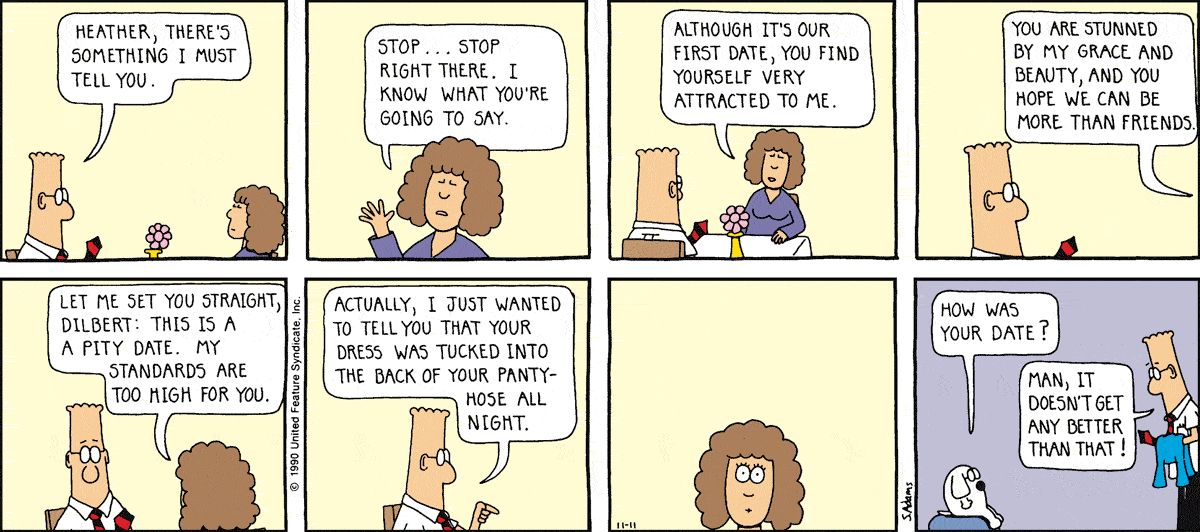









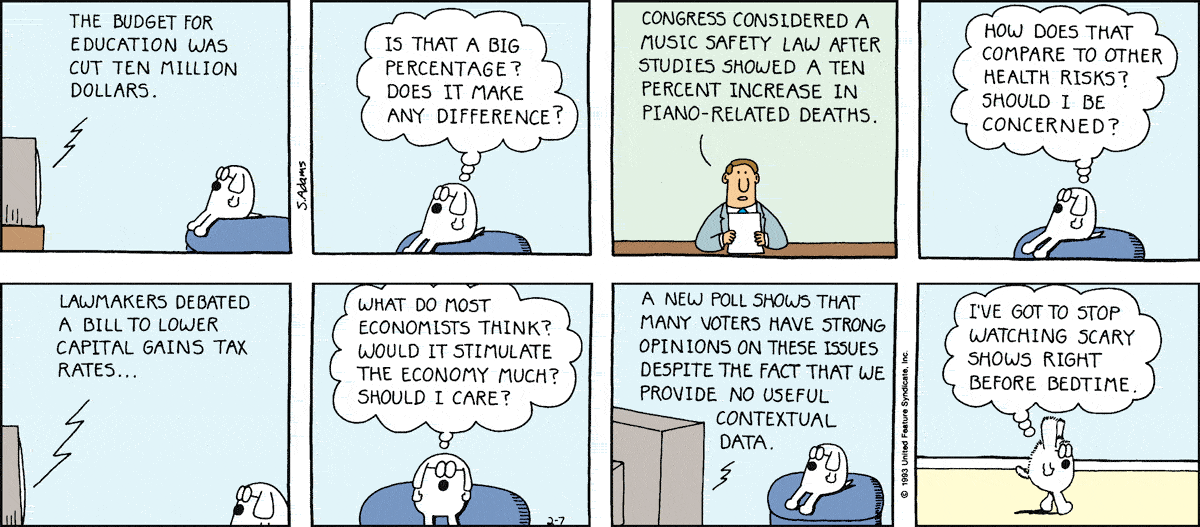














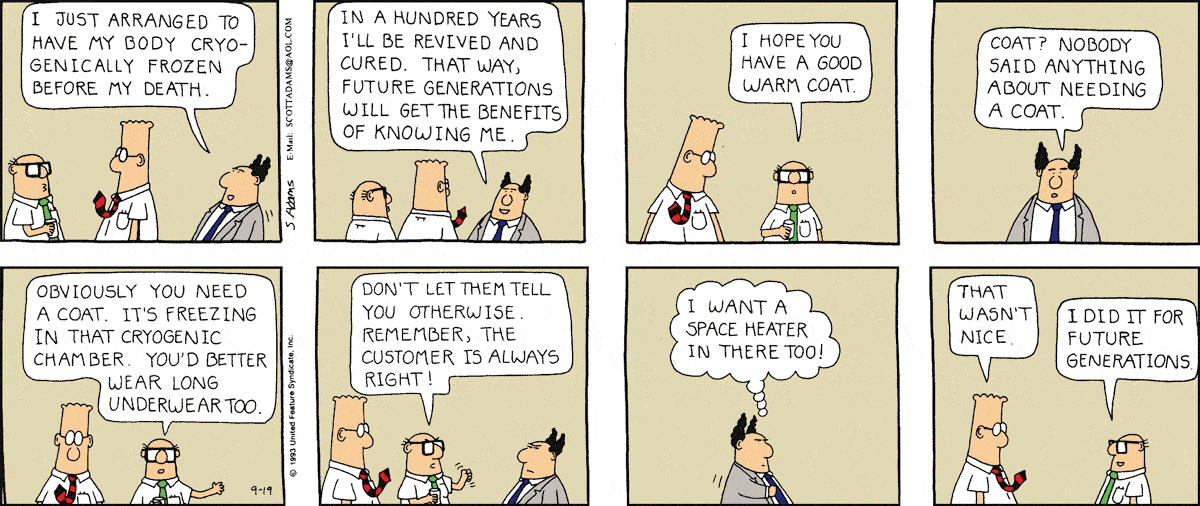









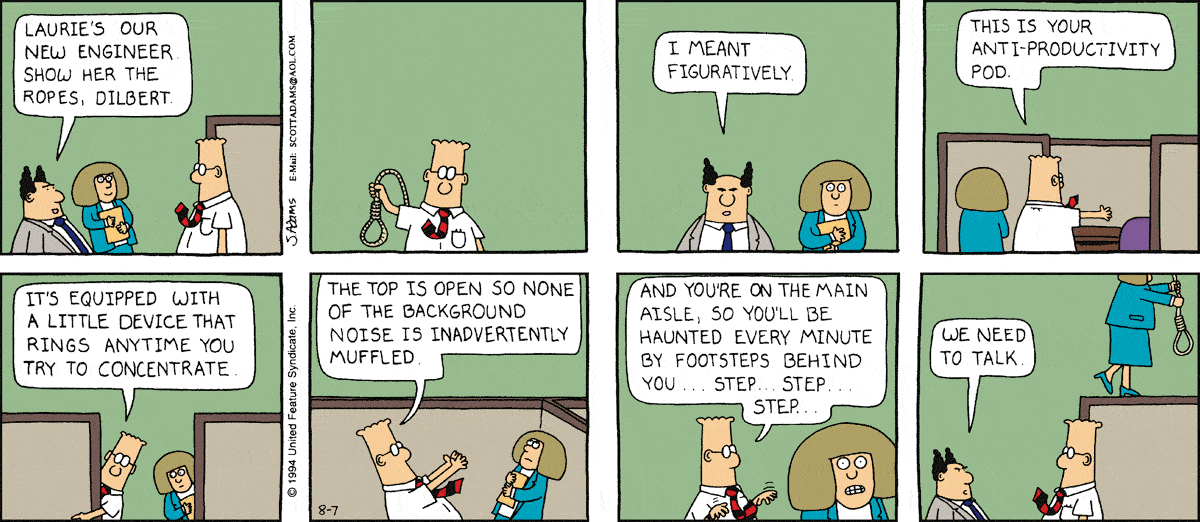

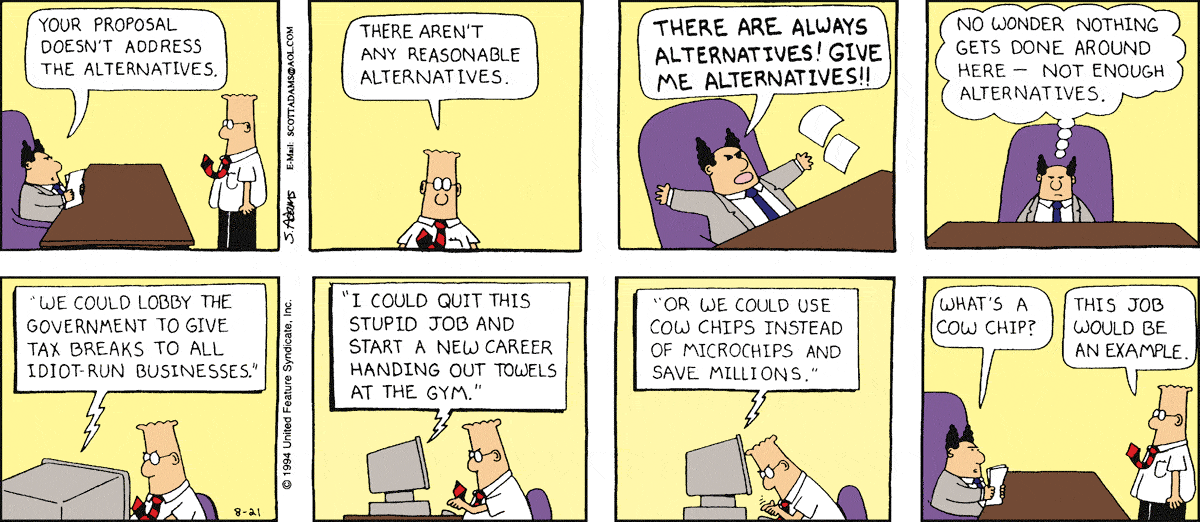
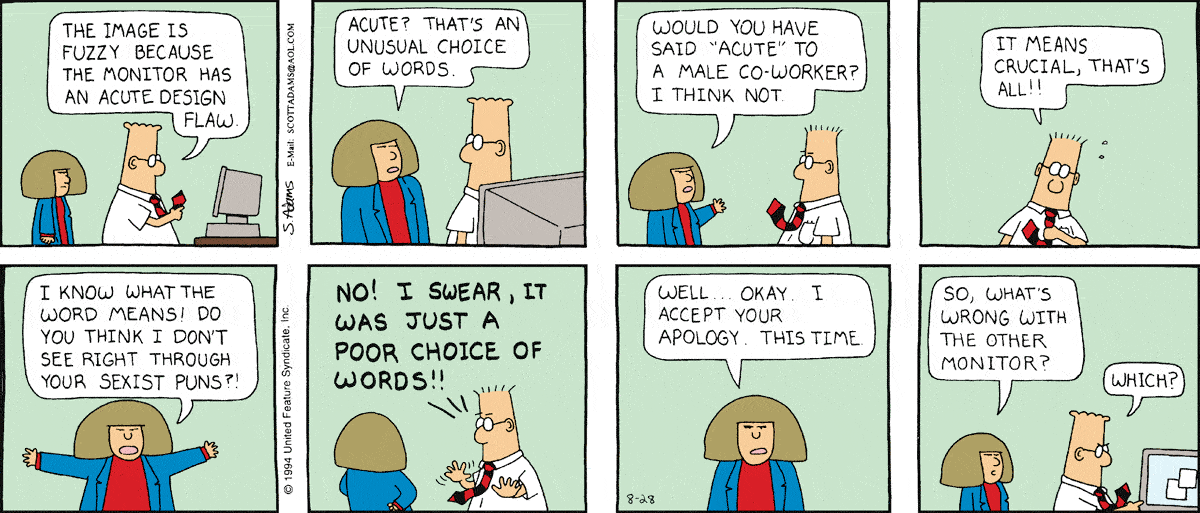

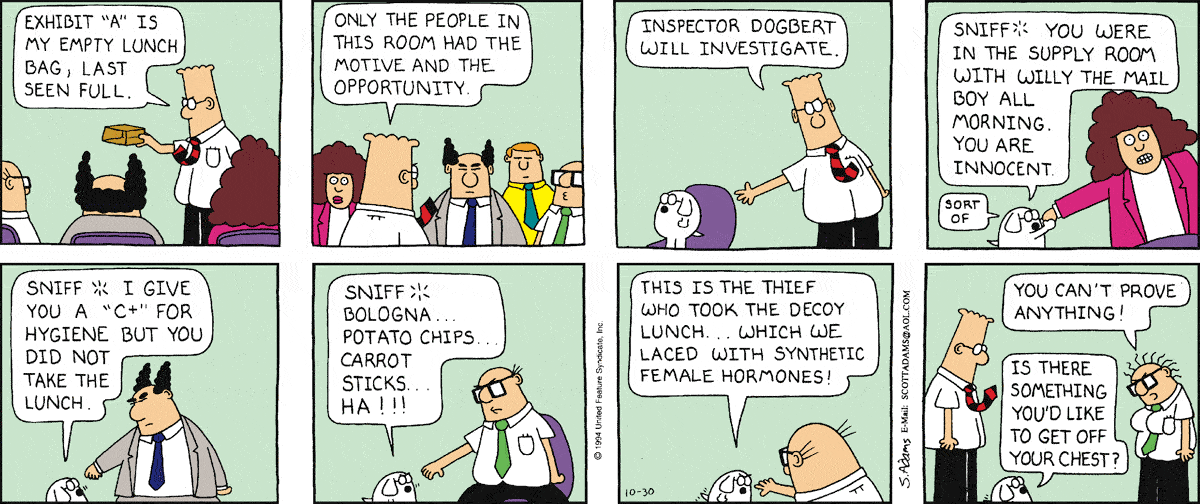
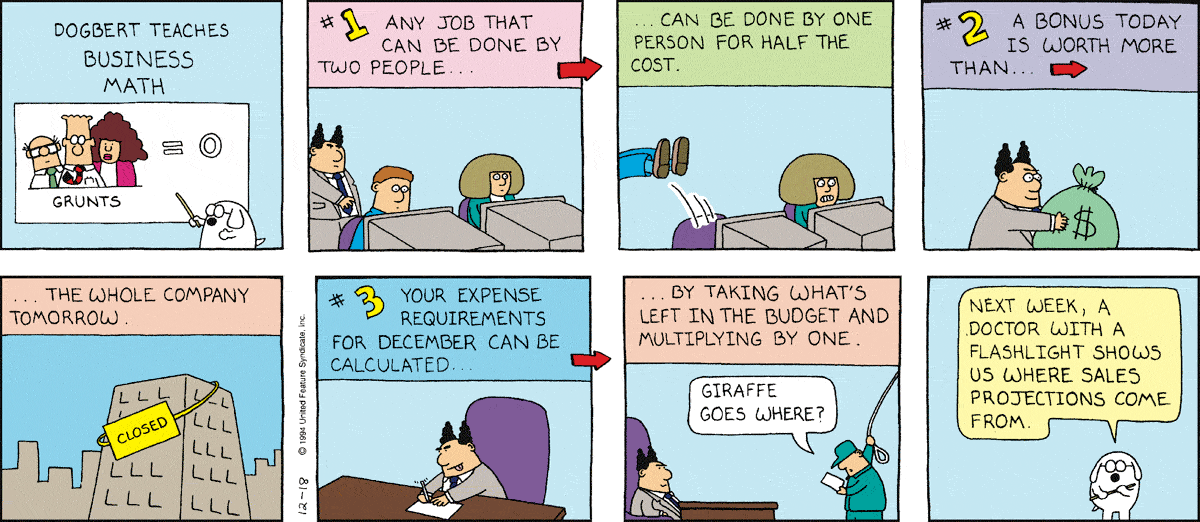






 RSS Feed
RSS Feed
